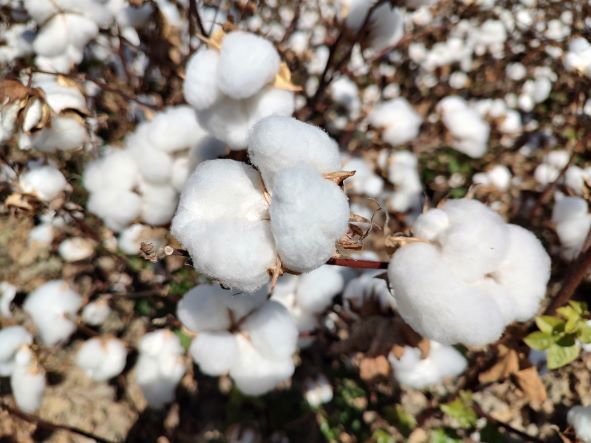Bayer Announces ‘Respect the Rotation’ Field Days
In a growing number of fields across this vast country, herbicide-resistant weeds are towering over valuable crops, their branches dripping thousands of stubborn seeds that if left unchecked will infest fields and choke out profits for years to come. In the Mid-South, crews of workers are chopping pigweed that resemble small trees. These all too common sights in the Mid-South are threatening to become commonplace in the Midwest. More than at any time in our history, farmers must manage for weed control or face the loss of productivity, sustainability and their legacy to future generations.
To help cultivate ideas and answers to these resistance problems, Bayer CropScience and its university partners have scheduled 12 Respect the Rotation field day events for 2012 at research facilities and farms throughout the Midwest and South.
Now entering its third year, Respect the Rotation promotes rotation of crops, herbicide-tolerant traits and herbicide modes of action to encourage greater diversity in herbicide programs and reinforce the principles of Integrated Weed Management. These in-field, in-season forums allow farmers and industry experts to bring the lab to the field and learn the real impact of weed resistance issues. They explore solutions spanning a multitude of arenas and technologies designed to allow farmers to fight back. The initiative aims to help change mindsets and management practices to help sustain profitability and longevity for farmers, as well as maintain the value and effectiveness of current herbicide programs and trait technologies.
During last year’s programs, more than 1,000 farmers, retailers and crop consultants saw the impact that herbicide-resistant weeds can potentially have on their farming operations and profits.
“Respect The Rotation was launched by Bayer to elevate the crisis of weed resistance in the U.S.,” explains Andy Hurst, trait product manager for Bayer CropScience. “Weeds resistant to glyphosate and other herbicides are a huge threat, not only to weed management, but also to efficient production of row crops. Farmers need to stay ahead of this curve, adopt good weed management practices like rotation of the LibertyLink trait into their crop production plans, and hopefully preserve the value of technologies they have currently available to them.
“Bayer is dedicated to bringing game-changing technologies to market that address the most important agronomic challenges farmers face,” he adds. “These solutions affect not only an individual farmer’s profitability, but contribute to U.S. agriculture by providing healthier, more plentiful food for the world, one harvest at a time.”
Geographical Emphasis
Events will be held in both the Midwest and the South this summer.
Southern events are scheduled for Arkansas, Mississippi and North Carolina, where the continued spread of glyphosate-tolerant Palmer amaranth – which can grow two or more inches per day – threatens traditional row crop production in a very big way. Southern farmers continue to focus on rotation and prevention.
“I’ve seen fields that probably didn’t justify putting a combine through, and that’s at 12-to-13 dollar soybeans,” reports Richard Imboden, who grows soybeans and rice near Cherry Valley, Ark. “I decided I
had to do something, and I’m doing the best I can to keep the problem down. It’s a proactive thing. It’s a lot easier to prevent a problem than cure it.”
Midwest events will be held at sites in Illinois, Indiana, Iowa, Kansas, Nebraska and Minnesota where glyphosate-resistant waterhemp, giant ragweed, kochia and other weeds are the cause of increasing damage for farmers across the Corn Belt. In addition, weed resistance to other herbicide modes of action and weeds with multiple resistance present another layer of problems for which Midwest farmers are desperate to find a solution.
“We did survey work to determine what is the incidence of glyphosate resistance in waterhemp, as well as the incidence of multiple resistance to two other herbicides,” says Pat Tranel, weed scientist with the University of Illinois. “Glyphosate resistance was confirmed in 83 percent of the fields [in Illinois] where resistance was suspected, and that’s not real surprising. The bottom line is if you suspect you have resistance to glyphosate, you probably do. You probably also have resistance to ALS inhibitors, and you have a one-in-three chance of also having resistance to PPO inhibitors.”
Respect the Rotation
The only way to remain profitable in the face of weed resistance is to Respect the Rotation – rotation of crops, herbicide modes of action and herbicide-tolerant traits to increase diversity in every facet of crop production.
For dates and locations on the 2012 schedule – and to register for the event nearest you – please visit http://events.signup4.com/respecttherotation2012, talk to your local Bayer CropScience representative or call 1-866-99-BAYER (1-866-992-2937). Additional information about Respect the Rotation, including educational tools, is available online at http://www.bayercropscience.us/our-commitment/respect-the-rotation








